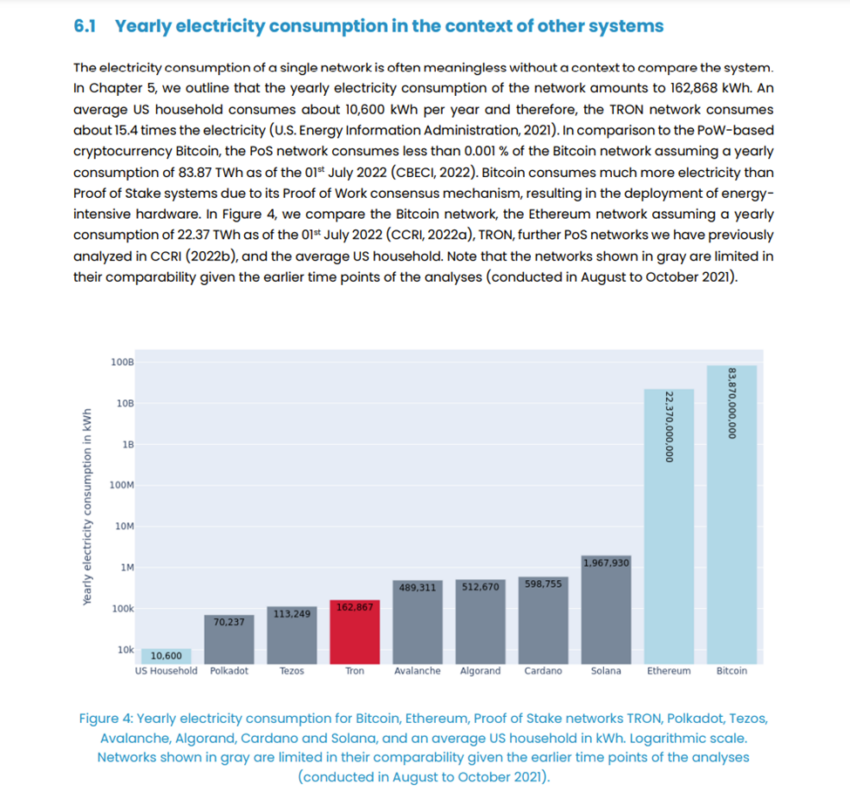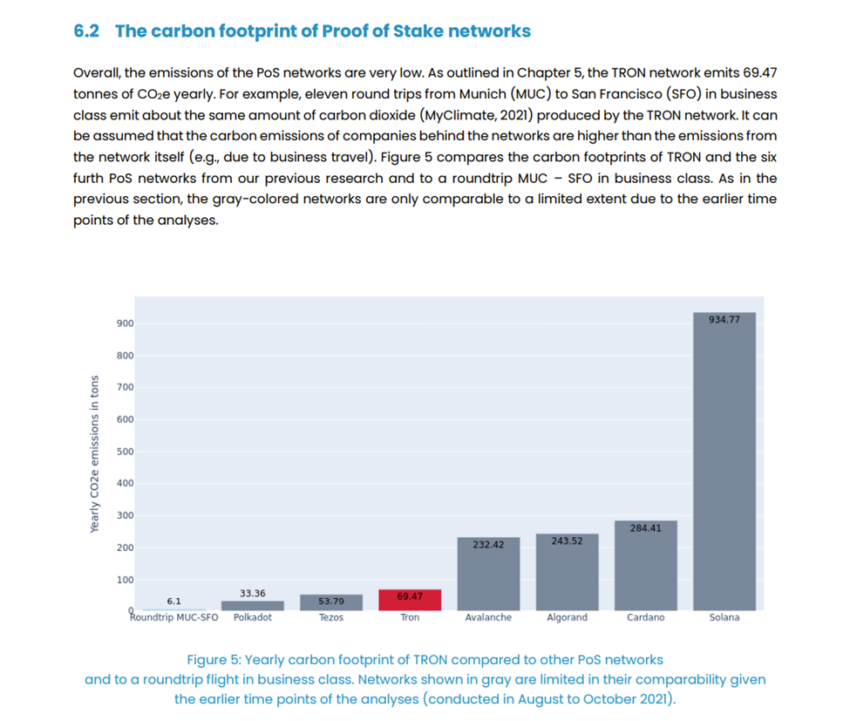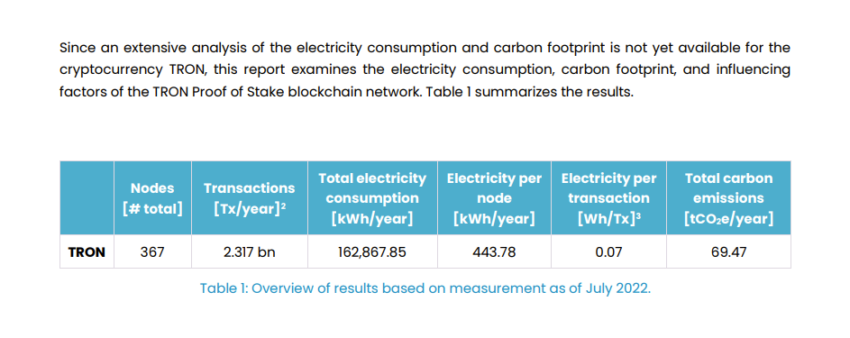The report from CCRI shows that PoS blockchains are saving significant fuel compared to Bitcoin and Ethereum. In particular, the full-year electricity consumption of the Tron blockchain is only equivalent to 15 US households.

In a report from the Crypto Carbon Ratings Institute (CCRI) studying the energy consumption and Carbon emissions from the Tron blockchain, CCRI compared the energy consumption between 2 Proof of Work (PoW) blockchains and 7 Proof of Stake (PoS) blockchains with the average US household consumption as of July 2022.
Which, the average consumption of an American household is 10,600 kWh. Bitcoin (BTC) consumes 83.87 billion kWh or 83.87 TWh, equivalent to the electricity consumption of 7.9 million households. Ethereum (ETH) PoW consumes 22.37 billion kWh or 22.37 TWh, equivalent to the electricity consumption of 2.1 million households.
PoS chains have significantly lower electricity consumption with Polkadot consuming only 70,237 kWh/year, equivalent to nearly 7 households. However, the report notes that the gray figures are “limited in comparability”.

As for the Carbon emission measurement table, CCRI commented that “the emissions of the PoS network are very low”. If the carbon emissions from a round-trip flight from Munich to San Francisco are 6.1 tons of CO2, Polkadot has the lowest emissions of 33.36 tons of CO2 and Solana the highest with 934.77 tons of CO2. Similar to the above section, the report commented that the gray figures are “limited in comparability”.
Overall, CCRI has made it clear that the PoS blockchain is reducing environmental pollution more than PoW.

As the title of the CCRI report focuses on Tron, CCRI has shown that the electricity consumption of the Tron blockchain is only 15.4 US households or 162,867 kWh. That is, Tron’s electricity consumption is only 0.000002 times that of Bitcoin and 0.000007 times that of Ethereum.

In terms of carbon emissions, Tron has emitted 69.47 tons of CO2/year. To make it easy to imagine, the amount of carbon produced by the Tron network is only 11 round trips from Munich to San Francisco.
Although Tron is not the most energy-efficient or the least carbon-emitting network, the blockchain processes 2.31 billion transactions per year, or 0.07 (Wh/tx)^3 per transaction. Therefore, this blockchain is considered to have a fast transaction processing speed but low fees.
DISCLAIMER: The Information on this website is provided as general market commentary and does not constitute investment advice. We encourage you to do your own research before investing.
Join CoinCu Telegram to keep track of news: https://t.me/coincunews
Follow CoinCu Youtube Channel | Follow CoinCu Facebook page
Harold
CoinCu News























